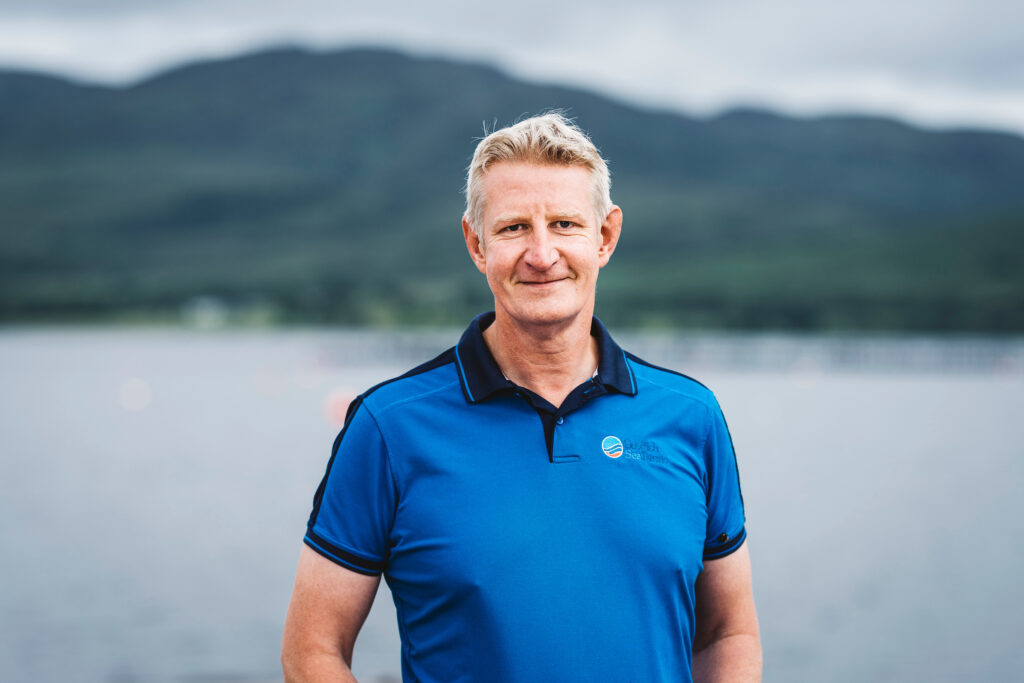Scottish Sea Farms’ incubation unit set for autumn opening

Salmon producer Scottish Sea Farms says the £2m incubation unit at its Barcaldine hatchery is on track to open this autumn.
Scottish Sea Farms, which is jointly owned by Norway’s SalMar and Lerøy, believes the new unit will help ensure security of egg supply and improve fish survival.
Currently, the Barcaldine hatchery receives fertilised eggs that have developed to the eyed stage from its specialist suppliers.
Thanks to a new incubation unit, which will be located in its own dedicated building adjacent to the main hatchery, Scottish Sea Farms will soon be able to receive eggs immediately post-stripping and fertilise them on-site.
This means they can be incubated through the most fragile stages of their development until robust enough to be transferred to one of the company’s three hatcheries: Barcaldine itself, Knock – on the nearby Isle of Mull – or Girlsta in Shetland.
Barcaldine is situated on the banks of Loch Creran in Argyll, on the west coast of Scotland.
Scottish Sea Farms’ Head of Freshwater, Rory Conn, commented: “What we’re doing is creating a bespoke facility that will allow us to have greater control of the eggs even earlier in the production cycle.”
“We’ll be able to take our time through these most critical initial stages, incubating the eggs for longer and at lower temperatures as we deem appropriate.”
Emerging research suggests, he said, that incubating eggs at lower temperatures during the very early stages can have better outcomes for fish health later in life, particularly with regard to cardiac health.
He added: “We would be looking to incubate as low as possible, likely 2-3°C, to encourage the slow and steady development of the ova.”
By receiving eggs immediately post-stripping, the freshwater team will also have greater influence over another key welfare factor – water quality.
“Exposure to clean water is hugely important and we’re very confident of our water quality here at Barcaldine,” said Conn.
“Equipped with the most sophisticated recirculating aquaculture system (RAS) of its kind in Scotland, the main hatchery draws in freshwater from the nearby Gleann Dubh reservoir and puts it through a complex system of filters and UV light to remove anything greater than 0.01 microns and ensure that no bacteria or viruses can get through.
“Within the new unit, there will be three similar RAS setups, supplying water to the racks where the new eggs are housed.
“Any one of the racks can be supplied by an individual RAS setup so we can supply them all at different temperatures should we choose to – the importance being that it gives us control over how quickly or otherwise the ova develops.
“And because the water is so clean, it’s as safe as it can possibly be for the ova.”
The new unit is expected to create four additional jobs at Barcaldine, skilled roles that will involve everything from fertilising the eggs with milt, to rinsing and disinfecting the ova.
Once the eggs reach the eyed ova stage, they will go through a comprehensive quality check process to ensure that only viable eggs are transferred to incubation trays.

Scottish Sea Farms’ Head of Freshwater, Rory Conn
“The priority with this latest investment in our freshwater farming is to secure the supply and quality of our ova and provide the capacity for optimal incubation, from fertilisation onwards,” said Conn.
“Initially, we’ll fertilise only a proportion of our ova supply on-site. However, the unit has the capacity to accommodate all our current and future ova requirements.”
The new unit is the latest investment by Scottish Sea Farms to future-proof egg supply and fish health and survival.
Other work in this area includes a ground-breaking collaboration with genetics specialist AquaGen to produce a supply of eggs from broodstock that have been proven to thrive at Scottish Sea Farms’ marine sites – a project that is now in its fifth year.

